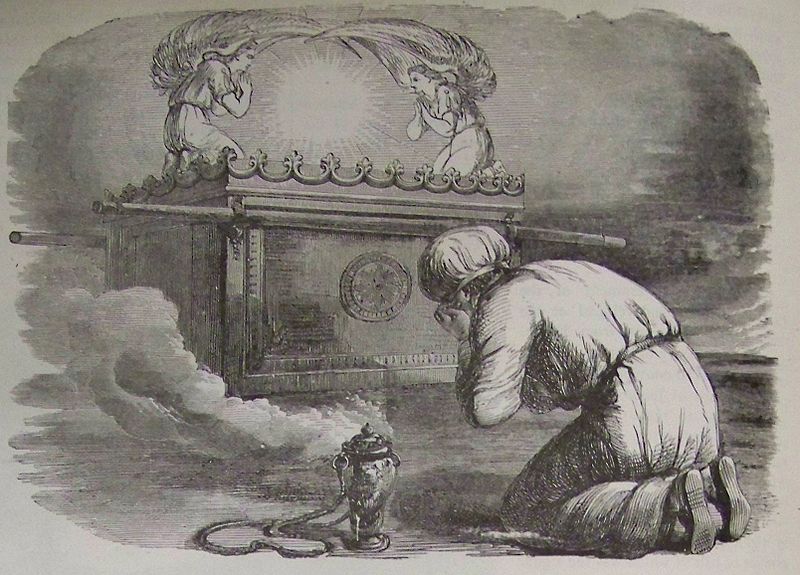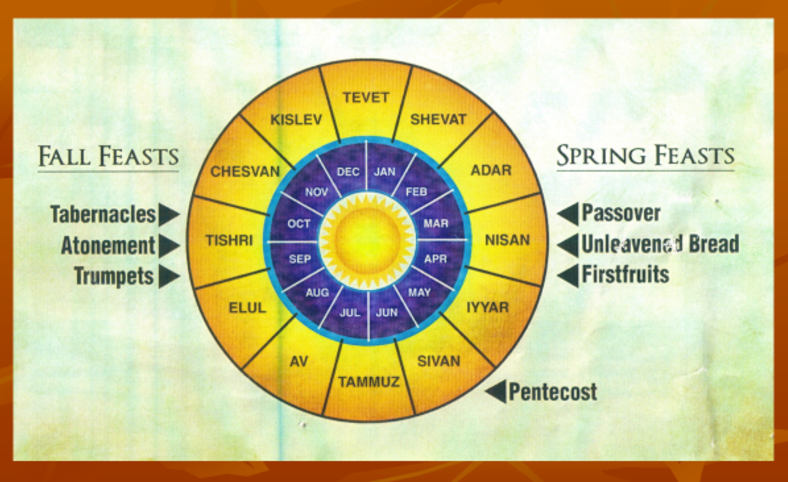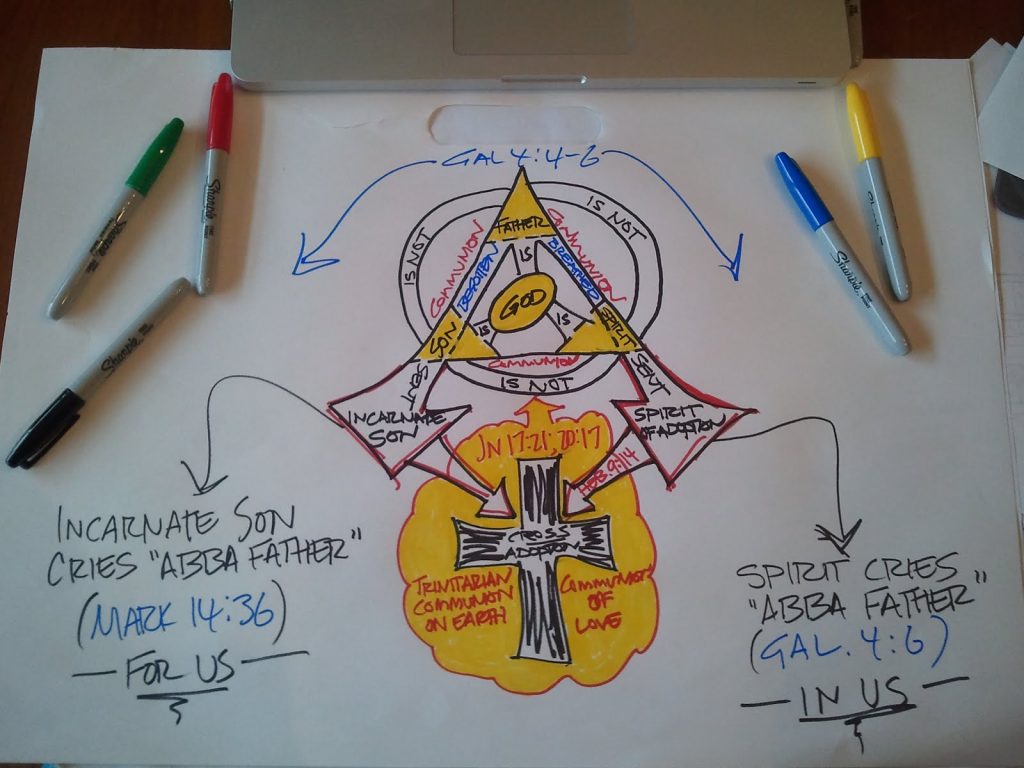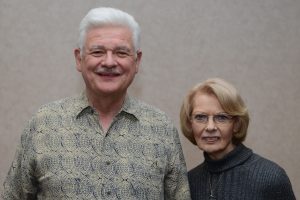Dear Brothers and Sisters,

Our thoughts and prayers continue to be with those recovering from hurricane Harvey and now from hurricane Irma. For information concerning the impact of Irma on our members in the Caribbean and the U.S., click here.
Let’s turn now to a topic that needs to be addressed from time to time. It involves two aberrant teachings that advocate esoteric religious practices for Christians. Both come with the promise that those who adopt the advocated practice will gain favor with God. The first is known as the “sacred names” doctrine, and the second teaches that Christians must observe the holy days God gave Israel through Moses.
The sacred names doctrine
Though the Bible does not teach that the Hebrew language (or any language, for that matter) is sacred, the sacred names doctrine asserts that God must be addressed using the Hebrew name Yahweh and Jesus must be addressed using the Hebrew name Yahshua. The falsity of this assertion is seen by noting that by inspiring the New Testament to be written in Greek, God has clearly shown that the Hebrew language is not required to hear an authoritative and life-giving word from him. Understanding this to be true, the Jews translated the Old Testament into Greek, producing what is known as the Septuagint. Many of the quotations of the Old Testament in the New Testament are from the Septuagint.
Human languages, being created things, are not sacred, nor are they magical—they have no special power in and of themselves. Human languages do not operate as mediators controlling access to God or his blessings. Treating created things as if they had such powers is idolatry. While Scripture is God’s inspired Word, its words (in any language) have no power apart from the action of the living God by his Spirit. Though the language used in writing Scripture is God’s gift, it is not one that should control (in either a legal or a magical way) our relationship to God.
Israel’s holy days
Most of us are familiar with the annual cycle of festivals set out for Israel by God in the Law of Moses (see the chart below). As a focus of this worship, Israel was required to perform various ceremonial duties—kill a lamb and put its blood on the doorposts at Passover, remove leaven from their property for the week of Unleavened Bread, blow shofars to announce the arrival of the New Year on Trumpets, fast on Atonement, and live in temporary dwellings throughout Tabernacles.
Some well-meaning Christians try to observe Israel’s holy days to varying degrees, thinking that God is more pleased with the Christians who do so. These folks seem unable to grasp the biblical teaching that the purpose of the worship practices given to Israel was to point them to Jesus and his atoning ministry—a ministry that has already been accomplished, and thus fulfilled. It is Jesus’ shed blood that secures our forgiveness—not killing and eating a ritual lamb. It is Jesus who cleanses us from sin, not deleavening our homes. It is Jesus who trumpets our salvation, not the blowing of shofars. Because Jesus is our eternal dwelling place, there is no need to dwell in temporary booths. Now that Jesus has come and completed his work of salvation, observance of these holy days can actually point people away from Jesus to their own works.
As an example, consider the observance of the Day of Atonement (known to the Jews as Yom Kippur). It begins this year at sundown on Friday, Sept. 29. This day of fasting was considered the most holy of all of Israel’s festivals, and so was a principal focus of Israel’s annual worship cycle. Unfortunately, some Christians think God commands them to observe this day so that they might receive God’s forgiveness and so be cleansed from sin. In doing so, they overlook the New Testament’s teaching that we in no way contribute to our salvation, nor do we maintain it through works of the Law of Moses (including observing Israel’s holy days).
Believing that we must fast on Yom Kippur in order to be atoned for, negates the all-sufficient atonement that Jesus already has provided for the sins of the world. To observe the Day of Atonement as if it were required for Christians would be to say that Jesus’ completed, atoning work is somehow not enough—that we must somehow atone for ourselves. But note what is said to the contrary in the book of Hebrews:
For Christ did not enter a sanctuary made with human hands that was only a copy of the true one; he entered heaven itself, now to appear for us in God’s presence. Nor did he enter heaven to offer himself again and again, the way the high priest enters the Most Holy Place every year with blood that is not his own. Otherwise Christ would have had to suffer many times since the creation of the world. But he has appeared once for all at the culmination of the ages to do away with sin by the sacrifice of himself. (Heb. 9:24-26)
God gave Yom Kippur to Israel as a map pointing them forward towards the relationship that God, through Christ, would have with all humanity. By fasting, Israel acted out the reality of our need for the never-ending eternal life that is ours in and through Christ who, alone, is our atonement. If one discontinues eating for a lengthy time, death results. Fasting thus symbolizes passing from life to death. The symbolism then comes full-circle when eating (picturing the return to life) commences at the close of the Day of Atonement. Those who have fasted for 24 hours know how good food tastes after a fast!

(public domain via Wikimedia Commons)
In ancient Israel, Yom Kippur was the only day of the year when the High Priest was permitted to enter the Holy of Holies (sometimes called the Most Holy Place)—the inner chamber of the Temple pictured above. Because of this, Jewish Midrash (commentaries on Scripture) associate Yom Kippur with the ancient Jewish idiom, face-to-face. Not surprisingly, the apostle Paul, who knew these commentaries well, spoke this way of our relationship with God through Christ:
For now we see only a reflection as in a mirror; then we shall see face to face. Now I know in part; then I shall know fully, even as I am fully known. (1 Cor. 13: 12)
Jews view Yom Kippur as the day on which people are closest to God. The Jewish website www.chabad.org says, “[it is] the day on which we are the closest to G-d and to the quintessence of our own souls.” Leviticus 16:30 says, “On this day atonement will be made for you, to cleanse you. Then, before the Lord, you will be clean from all your sins.” These are precisely what are ours through Jesus’ atoning work on our behalf. Through Jesus’ life, death, resurrection and continuing high priestly ministry in heaven, we are cleansed from sin and reconciled to God. Note Paul’s comment:
All this is from God, who reconciled us to himself through Christ and gave us the ministry of reconciliation: that God was reconciling the world to himself in Christ, not counting people’s sins against them…. God made him who had no sin to be sin for us, so that in him we might become the righteousness of God. (2 Cor. 5:18-19, 21)
In Jesus, through his once-for-all atonement, we have come face-to-face with the Living God. We trust in him to be God’s presence to us and with us. He is our great High Priest and God’s own atonement, who mediates to us our fellowship and communion with the living God.
Celebrating that Jesus’ work is both abundant and more than adequate for us all,
Joseph Tkach





